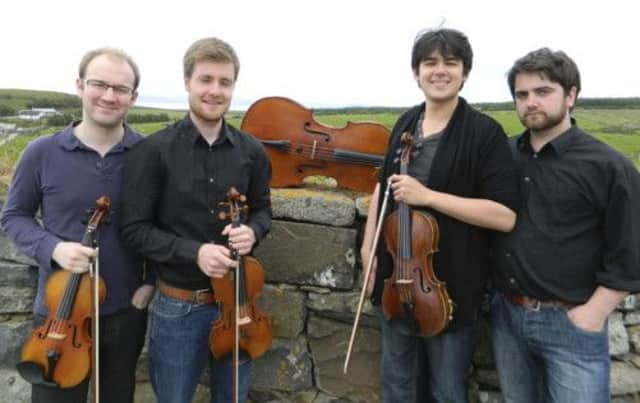McPherson ensures the Plug festival offers a glimpse of the next wave of creative talent


Plug, now in its eighth year as successor to Academy Now!, is all about showcasing original compositions by students of the RCS. This is raw, hungry, prodigious talent; youngsters, laying out the fruits of their compositional loins to public scrutiny for the first time.
One of this year’s concerts (4 May, 6pm) is given over exclusively to students of the Junior Conservatoire – in other words, school-aged children who attend the RCS’s regular Saturday junior school. “That grew out of the fact that members of the main teaching staff also teach at Junior Conservatoire level,” explains RCS head of artistic planning Nick Žekulin. “They have a Composers’ Day in February, out of which have evolved fully fledged pieces that are now ready for performance.”
Advertisement
Hide AdThis extraordinary opportunity says everything about the Conservatoire’s burgeoning composition department, which has grown like Topsy, both in quality and numbers, since Scots composer Gordon McPherson took over as its head.
RCS alumni already distinguishing themselves in the wider world include the likes of David Fennessey, Oliver Searle (currently nominated for a Royal Philharmonic Society award for his groundbreaking compositional work last year with the Drake Music Project) and Gareth Williams, all of whom are now on the teaching staff. But the wonderful thing about this year’s Plug is that it offers us an exciting glimpse of the next wave of creative talent, which is exactly what the event was always meant to be about.
“It was Gordon’s clear vision that, if we were doing student compositions, then let’s have them presented in actual performance, rather than on a computerised Sibelius modifier,” says Žekulin. “So, Plug was established very deliberately as a live festival of new student compositions.”
It is also presented on a thoroughly professional basis. The rehearsal process is rigorous. Guest artists are brought in to supplement the various student conductors, soloists and ensembles. Thus the appearance this year of the Maxwell String Quartet in Thursday’s opening concert, and a collaboration between the Red Note Ensemble (many of whom are on the RCS staff) and student contemporary ensemble MusicLab on 3 May, conducted by Gordon Bragg. That latter is also one of two programmes that will highlight the music of this year’s guest composer, Montreal-based Nicole Lizée, again an unfamiliar name, but one who, entering her forties, has already made significant waves among the North American avant garde, and is now making inroads in the UK. “Gordon’s been talking about her for a couple of years, but now is the right time to be getting her here,” says Žekulin. “She had a Proms commission last year, and also one from the Kronos Quartet. We’re lucky to get her at this stage in her career.”
Lizée has a quirky style of composition that is nostalgic for the 1980s – pieces based on early computer games, and a general affection for that era’s pop music. One of the works in Friday’s Red Note programme – Karappo Okesutura Vol 1 – takes its inspiration from Eternal Flame by The Bangles, Standing in the Dark by Platinum Blonde and Who’s That Girl? by Eurythmics. The title of another – Music for Body-Without-Organs – just sounds so weird; who wouldn’t be curious to see what it’s all about?
Indeed, one feature of Plug we’ve learnt to expect is the RCS students’ propensity for crazy, evocative titles. A quick skim over the programme throws up an assortment of eccentricities: Jay Capperauld’s Christus Tantasticus, Ysella Almqvist’s Angual phalanx, Tom Butler’s Replaceable Parts for the Irreplaceable You, and – among the Junior Conservatoire students – School Dinners by Robin Brandon-Turner.
Advertisement
Hide AdBut this is all serious stuff for a festival with serious intentions. “Plug has had a huge impact on our teaching of composition, and in the way our students develop,” says Žekulin. “It’s an experience that takes them out of the periphery of things and places them in the body of the kirk. They are able to strike up professional and personal relationships with fellow performing students, as well as the guest professionals, all of which is likely to benefit them as they move into professional life.”
• Plug 2013 is at the Royal Conservatoire of Scotland, Glasgow, from 2-4 May, see www.rcs.ac.uk